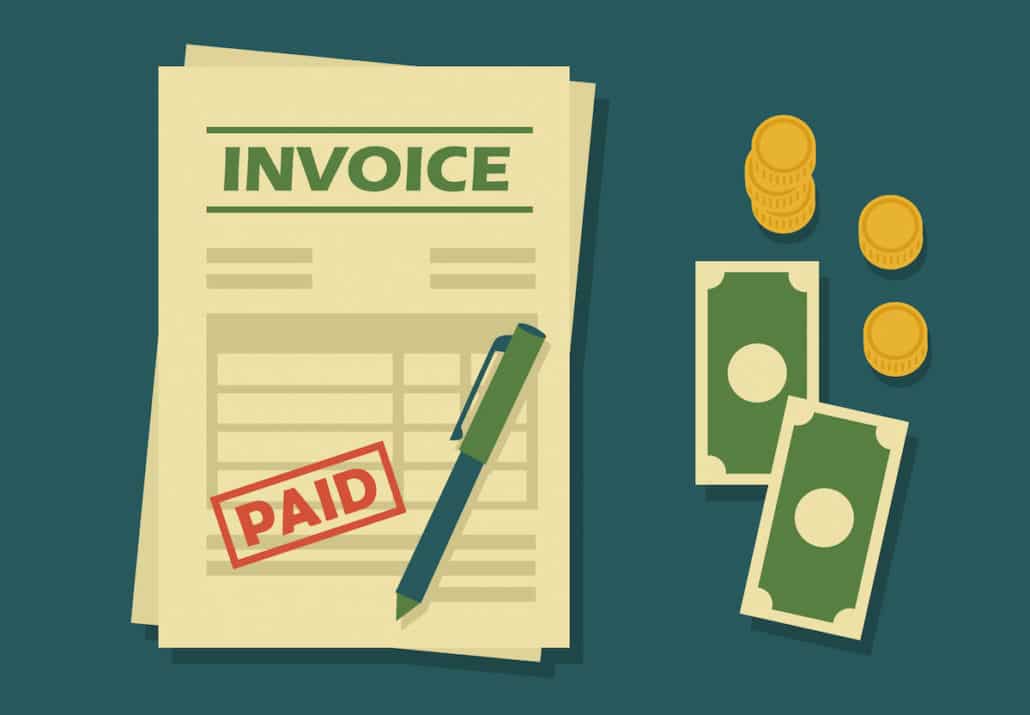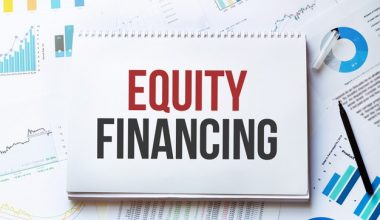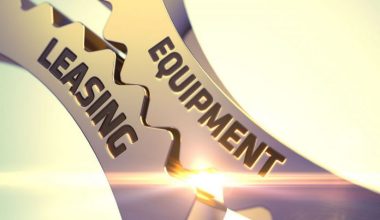Invoice factoring or bill factoring has been one of the means businesses raise funds. However, this is realized by selling invoices to a factoring company at a discount. The factory company purchases the invoices for a percentage of their total value. They also take full responsibility for the collection of invoice payments. Factoring helps companies release cash from their debtor book, this usually includes Credit Control Services. This article contains everything you need to know about the invoice factory and how it works with Invoice Factoring examples, rates of some companies, and their requirements. With the invoice factoring examples, you should have more knowledge of this article.
Invoice Factoring
Invoice factoring is a type of accounts receivable finance. It’s designed for businesses that invoice their customers and receive payments in terms. Accounts receivable financing is a form of asset-based lending (ABL) utilizing a company’s accounts receivable as collateral.
Moreover, Invoice factoring still serves as a financial product that enables businesses to sell unpaid invoices to a factory company. The unpaid invoices are the accounts receivable and the factory company which is the third party is the factor. You should probably know how to sustain your business, taking advantage of invoice factoring.
How Does Invoice Factoring Work?
Most factoring companies pay in two installments. The first covering the bulk of the receivables and the remainder when your client settles their invoice. These installments minus any factoring fee.
Therefore, how does this invoice factoring work?. Probably, this may be your question right now. But, you don’t have to ask further, this article covers the steps to make invoice factoring work for your business. Below, are some basic steps:
#1. You have to submit your business unpaid bill of statement to the factoring company that serves as the factor. Then, the factoring company will have to determine if you are eligible for a factoring facility. Also, they will assess how risky they feel the loan is and will then give you their quote.
#2. Once agreement is reached, the factor pays you the advance of the money.
#3. Collection of the invoice with your customers commence immediately by the factor.
#4. The larger creditworthy customers make payment directly to the factoring company according to the terms of the invoice. Once the factor has collected the invoice, they will balance you up to your money, minus their fee.
Read Also: List of Most Profitable Small Businesses: top 35 (+ detailed guide)
Invoice Factoring For Small Business
Small businesses can use invoice factoring as an alternative to loans. Instead of working with banks or lenders, small business owners can work with a third party, the factor. They can easily access funds from the factoring company (the factor) by factoring outstanding unpaid invoices. Factoring services address the financial needs of small businesses.
As a small business owner, sell your products or services on terms to commercial customers with good credit history. Then, there will be an alternative source of working capital available to you called invoice factoring. As explained earlier, bill factoring allows businesses to sell outstanding receivables to the factor, and get almost instant cash advances.
Get Fast and Reliable Funds With Small Business Factoring
Small business owners should not rely solely on banks, small business factoring is the smart alternative to bank loans. Bill factoring is a fast and simple way for small business owners to raise more funds to grow their business. Therefore, small business factoring is a viable option if you have issues qualifying for other forms of financing.
Bad credit is acceptable because approval is based on your customer’s credit, not yours. Moreover, with this, you can be free from long applications and strict funding requirements. Small business factoring provides instant cash with more flexibility and zeroes debt to repay. All you need is to sell your business invoices in exchange for an immediate advance. The money is already yours by doing this, and you are receiving it faster. Your business’s first experience with a factor may require 4-7 days to get paid. However, from then on, it is likely you will receive money in as little as 24 hours.
Benefits of Small Business Invoice Factoring
Every business requires constant working capital to be successful. Slow-paying clients can derail even the best financial plan, that is why small business factoring is important. Because of financial challenges, working with business factoring companies help to maintain consistent working capital for small business owners. The benefits include the following:
- Qualifying for the factoring credit line is easy.
- The eligibility is based on the creditworthiness of your customers, not your business.
- Provision for working capital that grows with your sales.
- It does not add debt to your ledgers or requires any monthly installations to pay back capital or fees. Unlike business loans or invoice financing.
- No factoring fee charges until payments are made to the factor.
- Is available to all B2B companies in all types of industries.
- Extend payment terms for customers.
- It helps small businesses to invest in marketing.
- Reduces collections expenses and administrative costs.
Read More: Cash Flow: All you need to know, Simplified + free format
Invoice Factoring Example
Take this to be an invoice factoring example; If your business delivers product QRP to BlueSea inc, issues an invoice for $1,000 and gives the debtor 60 days to pay. Your business makes an agreement with a factoring company on an 80% advance rate and a 2% discount fee every 30 days. Then, you sell the invoice to the factor to receive an advance of $800. On day 29 the debtor pays the invoice, the factor receives the payment and deposits it into a reserve account. Later, the factor deducts $20 as a factoring fee and wire the remaining $180 to your business bank account. Sometimes this is called a rebate. The invoice factoring example made it easy for you to understand more of invoice factoring.
In this invoice factoring example, you would typically pay about $20 in fees, so you get around a $180 balance once your customer paid. Your customer will also be aware you are using a factoring provider. Here is a Finance guideline you should probably know.
Invoice Factoring Loan
An invoice factoring loan is the purchasing of invoices at a discount. You receive a cash advance in the process, not a loan, for the purchase. Therefore, invoice factoring loan is therefore not a means of getting a loan, but turning your unpaid invoices into cash. You achieve this by selling the invoices to the factor, just as we have discussed earlier in this article.
Read Also: On Types of Brokers and Their Brokering Services
Invoice Factoring Requirements
Obliviously, invoice factoring has its requirements for every business or company. Here are the eight most common invoice factoring requirements:
- Factoring application
- An accounts receivable aging report
- A copy of your Articles of Incorporation
- Invoices to the factor
- Must have credit-worthy customers or clients.
- A business bank account
- A valid tax ID number
- Any form of personal identification
If your business or company have all these requirements, then you are good to go for invoice factoring. However, turning every of your unpaid or outstanding invoices into cash. Isn’t that great!. But you ought to have these requirements before you could benefit from invoice factoring.
Invoice Factoring Rates
Invoice Factoring rates vary by industry, risk, transaction workload, and volume. Businesses with lower risks whose receivables are easy to manage usually get lower rates and higher advances. Conversely, higher-risk companies or companies whose receivables require substantial processing tend to have higher rates. Industries like:
#1. General business: Has a factoring rate of about 1.15% – 4.5%, with advance rate of 70% – 85%.
#2. Staffing: Has factoring rate of 1.15% – 3.5%, and advance rate of 90% – 92%.
#3. Transportation: With factoring rate of 1.15% – 5%, and advance rate of 90% – 96%.
#4. Medical: This comes with a factoring rate of 2.5% – 4%, and advance rate of 60% – 80%.
#5. Construction: The factoring rate for this type of industry is 2.5% – 3.5%, with an advance rate of 70% – 80%.
Basically, we have two typical invoice factoring rates which are:
#1. Flat Rates vs. Variable Fees.
#2. Advance Rates.
What determines the factoring rate?
The two most important criteria that determine your rate are the factor’s risk of buying your invoices and your financing volume. Low-risk clients that finance high sales volumes usually get the lowest rates. On the other hand, higher-risk clients or clients with a low sales volume usually get higher rates.
Note, the costs of invoice factoring always come in two types of fees by most billing companies. These types of fees include; Invoice related factoring fees and Administrative fees. Factors claiming they have “one fee” include administrative fees in their factoring rates. Generally, the fewer the requirements and fees, the higher the invoice related factoring fees.
Read our other article on Best Product Mix Strategies To Scale Any Business + Detailed Guide.
Invoice (bill) Factoring Company
Bill factoring can be a confusing topic for most small business owners. And with so many different companies to choose from. So, finding the best option for your business can feel a bit overwhelming.
As we have discussed earlier in this article on invoice factoring company and how it works. An invoice factoring company buys unpaid invoices from businesses to give them an advance payment of their money instantly. They balance up to once the client pays after deducting their factoring rate or fee.
Now, finding these invoice factoring companies can be a difficult task for some business owners. This is the reason for this article, as it brings you to a complete guide to invoice factoring, factoring companies and it works.
Honestly, I have done all the research for you. Though, there are over 47 factoring companies in the world today and still counting. But below I listed the best 7 factoring companies you should know.
The 7 Best Invoice Factoring Companies of 2023
- BlueVine.
- Paragon Financial.
- altLINE.
- Triumph Business Capital.
- Breakout Capital.
- TCI Business Capital.
- Riviera Finance.
Online Invoice Factoring
Online invoice factoring with companies enables your business to quickly access working capital in exchange for your unpaid invoices. On other hand, is a method of small business financing involving three parties. These parties include the factoring company (factor), the business clients, with a factoring facility. The factor purchases the small business outstanding invoices, providing them with the fast access to funds they needed. Thereafter, the factor helps collect on the outstanding invoices and help manage the business credit risk and accounts receivable.
Factoring is not the same as a small business loan. With factoring, the factor purchases your bill of statement for up to 95% of their face value. And also provide you with the operating capital you need in as little as 48 hours. Unlike small business loans, AR factoring approvals are not based on your personal or business credit history. Instead, the factor considers the value of your outstanding invoices and the creditworthiness of your customers.
How Do Business Invoices Get Paid?
Read the example above to have a good understanding of this question some business owners ask. One of the best things about factoring services is that they help manage your accounts receivable and your credit risk. This saves you time and money. Instead of repeatedly billing customers and tracking payments, you just focus on your business. Then your customers remit payment directly to the factor. With the factor world-class customer support team and cutting-edge technology, they provide the best tools. Also, they provide good service to make factoring a smooth process for you and your customers.
Read Also: Cash Flow: All you need to know, Simplified + free format.
What Are the Disadvantages of Invoice Factoring?
What are the disadvantages of invoice factoring?
- The Price. The fees associated with this type of financing can be exorbitant.
- Liabilities. It is critical to understand that you may be held liable for unpaid invoices.
- Customer reliance.
- Lack of control
Do Small Businesses Use Factoring?
Small businesses that don’t want to take out loans can use factoring instead. Instead of banks or other lenders, small business owners can work with a third party called a “factor” or “factoring company” to get money by “factoring” their unpaid invoices.
Do You Need Good Credit for Invoice Factoring?
However, because invoice factoring doesn’t technically call for a standard credit check, it is now very well-liked by firms of all kinds with a bad credit history. Because of this, it might be a good alternative for you to think about further while you weigh all of your options.
Is Factoring an Asset or Liability?
Factoring is a type of account receivables financing, but it is classified as off balance sheet financing. This is because it is a contingent asset whose financing is secured from a source other than equity investors or lenders, so it is not listed on the balance sheet.
What Is the Pros of Invoice Factoring?
Invoice factoring can help business owners bridge the gap between when an invoice is made and when the customer actually pays. It’s a way to get money to put back into your business sooner rather than later, but you should watch out for extra fees and sneaky rules before you sign anything.
What Percent Do Factoring Companies Charge?
Factoring companies make money by charging a fee, which is usually a flat percentage of each invoice you factor. Most fees are between 1.15 and 3.5% per month. This depends on the type of factoring you choose and how many invoices (and how much each invoice is worth) you factor.
Is Invoice Factoring a Loan?
It’s not a loan; the customer pays the factoring company, so the business owner doesn’t have to worry about paying it back. Most importantly, just because a business chooses to factor invoices doesn’t mean it’s struggling or can’t serve its customers reliably.
Conclusion
Bill factoring works well for business owners that need funds quickly. You just need to have reliable clients that have a history of paying invoices on time. Also, clients can afford the fees that come with selling invoices to a third party. If this sounds like your business, you might benefit from this method of raising quick cash for your business.
Meanwhile, starting with a list of these companies and working through them may be frustrating. However, working through these factoring companies one at a time may not be the fastest way to select a factor. To help reduce the time I have done some initial research to help you narrow down the list above. I advise you to contact the company directly to learn more about rates, terms, and how it can help your business.
Related Articles
- Debt Factoring: Guide for any Business(+ Practical Examples)(Opens in a new browser tab)
- Factoring Company: Definition and Guide To The Best Companies(Opens in a new browser tab)
- Invoice Financing vs. Factoring: Overview, Differences & Similarities(Opens in a new browser tab)
- Cash flow management: Best ways to manage your cash flow effectively(Opens in a new browser tab)
- Invoice Financing: Definition, Types, Pros & Cons(Opens in a new browser tab)






